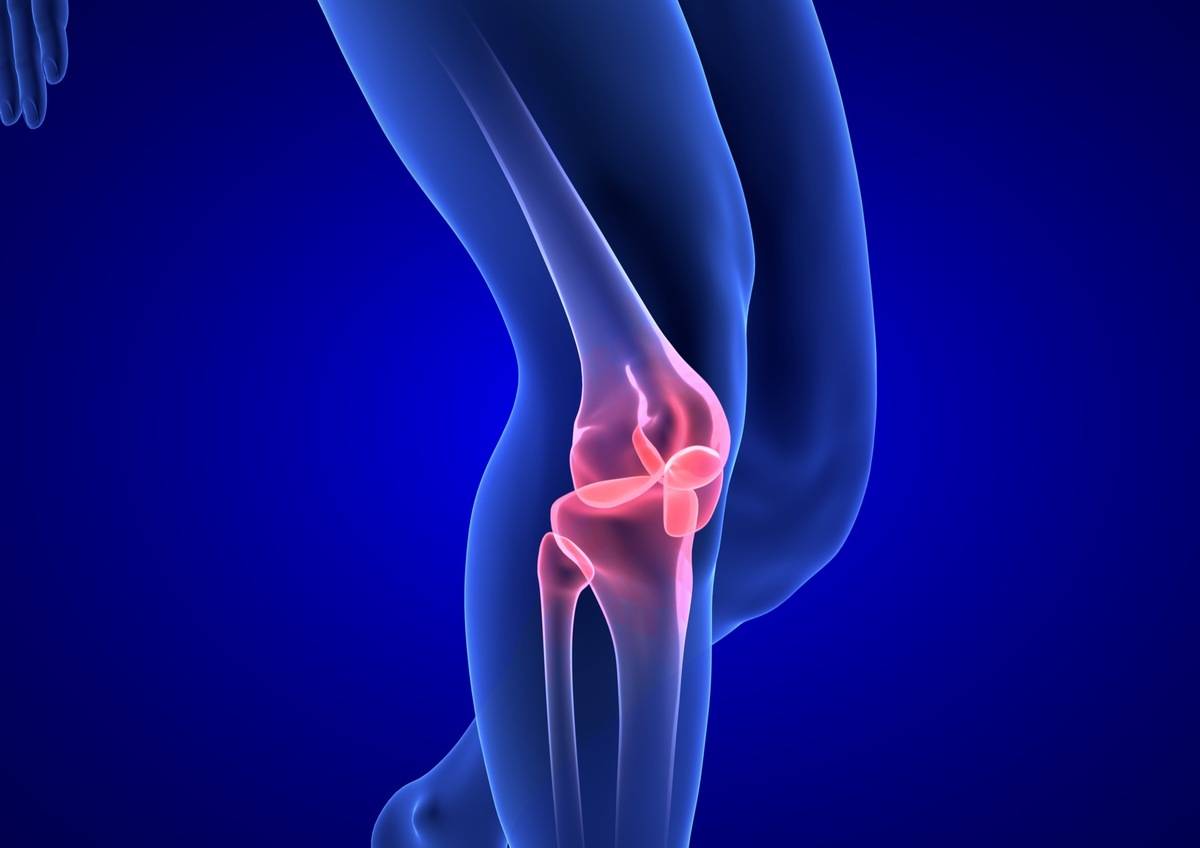According to a 2018 report, walking is the most popular form of exercise in America. Even so, many do not know the benefits of walking every day. You won’t just strengthen your legs; you’ll also boost your immune system, drop weight, and even enhance your brain. When you walk every day, you’ll receive all of these health benefits and more.
Your Risk Of Cancer Will Decrease

Sponsored Links
If you walk daily, your risk of cancer drops. According to a 2014 study in Acta Oncologica, people who walk five miles every week have a lower risk of breast and colorectal cancer. Another study in the Journal of Clinical Oncology examined people who walked 2.5 to 5 hours each week. Their chances of kidney, liver, colon, endometrial, and blood cancer shrank.
That said, it is not possible to “walk away” from cancer. But your body can fight off cancer more easily if you get regular exercise, even moderate exercise like walking.
You Might Lose Weight

Contrary to popular belief, you do not have to exercise vigorously to lose weight. According to a 2002 study, participants who walked regularly for three months ended up losing weight. Even moderate walking can prevent weight gain if you do it consistently.
However, exercise alone cannot promote weight loss. In 2020, researchers from BYU discovered that people who walk between 10,000 and 15,000 daily is not enough to prevent weight gain. You have to combine a healthy diet with this exercise to see results.
You’ll Have Fewer Cravings

Did you know that walking can curb cravings? In 2011, researchers from the University of Exeter sent “78 regular chocolate-eaters” on 15-minute walks. On every day that they walked, participants ate half the amount of chocolate they usually would have.
It isn’t just chocolate, either. A 2015 study in PLoS ONE concluded that any sugary craving could be mitigated with a walk. Scientists believe that a low-intensity workout creates enough endorphins to eliminate the body’s cravings. So if you’re craving a sugary or salty treat, go for a short walk and then see how you feel.
You Might Live Longer

People who walk every day tend to live longer than those who do not exercise. In 2017, researchers from the American Cancer Society studied people who walked for 150 minutes every week (or half an hour for five days a week). These participants had a 20% lower mortality risk.
Another study examined over 16,000 participants over four years. Those who walked 1,000 steps daily (about half a mile) had a 28% lower chance of early death. If you increase that to 2,000 steps, the odds decrease by 32%.
Sleep Will Come More Easily

If you are struggling with sleep, daily walks can help. In 2019, research in Sleep Health determined that people who walk during the day tend to sleep better at night. Participants did not just sleep longer; they also had higher quality sleep and more energy during the day.
But how long should you walk? According to professional sports trainer Dana Santas, walking for at least 20 to 25 minutes daily is enough to enhance sleep. But you can certainly walk more for further health benefits.
Your Immune System Will Grow Stronger

During cold and flu season, walking becomes necessary. Going for a walk significantly benefits the immune system. According to research in Medicine and Science in Sports and Exercise, a 30-minute walk can boost your immune system.
Another study analyzed men and women who walked for 20 minutes five days per week. Over one year, they had 43% fewer sick days than people who did not walk. Exercise lowers inflammation and increases blood flow, which allows immune cells to perform more effectively when they need to.
Heart Health Will Improve

Many know that cardio improves heart health, but you don’t have to sprint to gain these benefits. According to research in Arteriosclerosis, Thrombosis and Vascular Biology, walking strengthens the heart as much as running does. What matters is how far you run or walk.
To have a healthier heart, you need to walk briskly and consistently. In 2011, scientists discovered that regular walking reduces the risk of cardiovascular disease in younger, middle, and older adults. It hastens your heart rate, pumps more blood, and sends more nutrients to your heart.
Your Mood Will Noticeably Improve

People who walk regularly tend to have a better mood. In 2015, scientists observed women who walked 200 minutes every week, or 40 minutes five days per week. After three years, the participants felt better emotionally, socialized more, and had more energy.
Walking releases endorphins, chemicals that lift your mood and alleviate pain. This can be especially healthy for older adults. In 2000, a Finnish study found that older adults who cannot exercise vigorously gained many benefits from walking. One of those benefits was a noticeable lack of depression symptoms.
Your Brain Will Become Sharper

If you are having trouble focusing, a quick walk might help. Studies have shown that walking boosts brain health. According to a 2017 study at New Mexico Highlands University, walking increases blood flow to the brain. This enhances brain function and literally “clears your head.”
Part of this has to do with walking’s effect on depression and anxiety, says Harvard Health Publishing. With a better mood, your brain can solve problems more quickly and enhance your overall thinking skills. This is why walking during a break speeds up your workflow.
You’ll Be Far Less Likely To Get Diabetes

Those who worry about getting type 2 diabetes might want to take up daily walking. Not only does walking help you lose weight, but it also controls blood sugar, according to a 2020 study in Medicine.
For the most promising results, walk after meals. In 2016, researchers discovered that post-dinner walks could stabilize blood sugar for people with type 2 diabetes and pre-diabetes. Andrew Reynolds, a researcher from the University of Otago, recommends walking after meals daily, especially after eating foods that are high in carbohydrates.
Sponsored Links
Your Chances Of Dementia Will Decrease

In 2019, scientists from Newcastle University noticed an odd connection between walking patterns. Older adults who walked more slowly were more likely to get diagnosed with dementia. Because walking nourishes the brain, people who exercise more and have greater mobility are less likely to get dementia.
According to a 2004 study in JAMA, walking greatly reduces the risk of dementia. There are many reasons for this, ranging from greater mobility to sharper memory to better overall health. Even in old age, nobody is too old to start walking and reinforce your brain.
You’ll Be Less Likely To Get Varicose Veins

Varicose veins form when valves become weakened or damaged, often from prolonged standing, weight gain, consuming high amounts of sugar. However, an eight-year study from the AARP found that walking can prevent varicose veins.
Not only does walking accelerate weight loss, but it also strengthens your blood vessels. According to Texas Endovascular, a daily 30-minute walk can delay or prevent varicose veins. If you are worried about it, elevate your legs after a run or long walk. This will prevent blood from pooling in your legs.
Joint Pain Will Gradually Fade

When people get joint pain, they might not want to exercise. But a brisk walk can alleviate that pain. During a 2019 study, participants with arthritis walked for three days a week. After six weeks, they had much less joint pain. Exercise strengthens the muscles around joints and releases hormones that combat pain.
Even short walks can soothe the pain for older adults with arthritis. According to a study by Northwestern University, walking for an hour each week reduces joint pain, especially in stiff areas like the knees.
You’ll Remain Mobile And Flexible, Even In Old Age

As people age, their muscles shrink, and they lose mobility. Daily walks can alleviate that. In BMC Geriatrics, a study reported that walking helps older adults stay on their feet. Those who walk regularly have fewer falls and feel more flexible.
The opposite is also true. According to a ten-year study in Journals of Gerontology: Medical Sciences, adults who sit often have more trouble walking as they get older. The more you walk today, the more fit and happy you will feel as you age.
Constipation Might Clear Up

A brisk walk can support your digestive system and ease constipation. In 2017, scientists tested women with chronic constipation. When they walked for an hour three times per week, their constipation symptoms noticeably improved, as did their overall quality of life.
Why does this happen? According to 2019 research in Nutrients, walking strengthens the abdominal muscles. This, plus the increased blood flow, encourages the gut to create more healthy bacteria called Bacteroides. Even 20-minute walks can restore valuable gut bacteria, says the same study.
You Might Have A Creative Epiphany

In 2014, Stanford scientists figured out why many people get their best ideas while walking. They compared participants’ creativity after walking or sitting. Most of the time, participants came up with more ideas after walking, both indoors and outdoors.
The study specifically reported on brainstorming, not extended focus. However, peoples’ creativity increased by 60%. If you get stumped by a creative project, take a brief walk, even if it is indoors or on a treadmill. The extra endorphins might boost your mood, too.
How Long Should Your Walk Be?

Many people measure their walks by time, such as 30 minutes, 5 days per week. Several studies have tested different spans of time. One of the largest was from the American Cancer Society, which tested over 140,000 people. The researchers discovered that walking for two hours every week makes people live longer.
For a minimum of two hours weekly, walk 25 minutes five days a week or 30 minutes four times per week. That said, you might need to built up to that time. Start with ten minute walks and gradually increase the length.
How Far Do You Need To Walk?

If you’re wondering how much you need to walk, the answer is simple: as much as you can. Many people aim for 10,000 steps daily, but a 2015 study found that mortality lowers by 7,500 steps. Even so, some fitness trainers recommend that you exceed 10,000 steps.
If you don’t like long walks, you can still achieve this. Physician and public health researcher William Tigbe recommends walking in brief spurts throughout the day. Take several ten-minute walking breaks, which will eventually add up to several thousand steps.
To Reap The Benefits, Elevate Your Heart Rate

To get the best out of your walk, do more than just a leisurely stroll. Personal trainer J.R. Jones recommends raising your heart rate. You don’t have to power walk, but as long as your heart is pumping faster than normal, you’ll receive health benefits.
The CDC offers another tip for moderate exercises such as walking: if you can’t sing but you can talk fairly easily, you’re going at a good pace. For many people, this is a brisk walk. Moving your arms along with your legs can also speed up your heart rate.
Going At Your Own Pace Is Enough

While walking, you do not need to push yourself too hard. In 2020, scientists from the Memorial University of Newfoundland studied participants who walked at a rate that felt comfortable. For most participants, walking “at their own pace” was enough to burn fat and advance weight loss.
Not only that, but the participants also had a lower risk of diabetes, heart disease, and stroke after walking at their own pace. The key is to walk just fast enough to feel your heartbeat and gain muscle.
Blueberries

Sponsored Links
Blueberries are nature’s candy and it’s a wonder why people aren’t eating more of them! Despite their teeny size and delicious taste, blueberries pack quite a punch when it comes to nutrition.
The gallic acid in blueberries prevents our brains from degeneration and stress, which makes sense because how could you be upset while eating a blueberry? To make things even sweeter, blueberries are one of the highest antioxidant-rich fruits around, which prevents brain damage from free radicals. To make things even sweeter, blueberries are chock full of vitamin C, vitamin K, and fiber.
